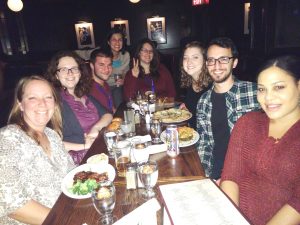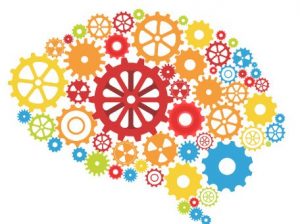
Memory is the fabric of our lives…arguably, the very essence of being human. We need memory to use language, to learn, to explain our beliefs and values, to tell jokes, to reminisce of events long past or of what we had for breakfast this morning. We often have unrelenting faith that our memories are accurate. However, memory, like any human being, is fallible. I am fascinated by how we come to remember events that never occurred, yet we firmly believe that our memory for such events is accurate.
 How and why we construct false memories is the focus of my scholarly endeavors. I strive to understand the theoretical underpinnings of the creation of false memories, and I attempt to apply cognitive theories of memory to explain and predict various everyday memory phenomena. Currently, my research involves two major lines of inquiry which involve different methodologies: (a) individual differences in the creation of false memories, and (b) social factors related to memory errors, including the role of collaborative memory in eyewitness and media contexts.
How and why we construct false memories is the focus of my scholarly endeavors. I strive to understand the theoretical underpinnings of the creation of false memories, and I attempt to apply cognitive theories of memory to explain and predict various everyday memory phenomena. Currently, my research involves two major lines of inquiry which involve different methodologies: (a) individual differences in the creation of false memories, and (b) social factors related to memory errors, including the role of collaborative memory in eyewitness and media contexts.
Visit Our Pages
Selected Publications
Goodwin, K. A. & Goodwin, C. J. (2017). Research in psychology: Methods and design (8th ed.). Hoboken, NJ: Wiley.
Rothweiler, J. N., Goodwin, K. A., & Kukucka, J. (2020). Presence of administrators differentially impacts eyewitness discriminability for same- and other-race identifications. Applied Cognitive Psychology, 34(6), 1530-1537. https://doi.org/10.1002/acp.3733
Goodwin, K. A., Hannah, P. Nicholl, M., & Ferri, J. (2017). The confident co-witness: Effects of misinformation on memory after collaborative discussion. Applied Cognitive Psychology, 31, 225-235. doi: 10.1037/t08115-000
Goodwin, K. A., & Kukucka, J. P., Hawks, I. M. (2013). Co-witness confidence and eyewitness memory: An examination of normative and informational social influences. Applied Cognitive Psychology, 27, 91-100. doi: 10.1002/acp.2877
Goodwin, K. A. (2013). Reducing false memories via context reinstatement: The roles of encoding and retrieval contexts. American Journal of Psychology, 126, 213-225. doi: 10.5406/amerjpsyc.126.2.0213